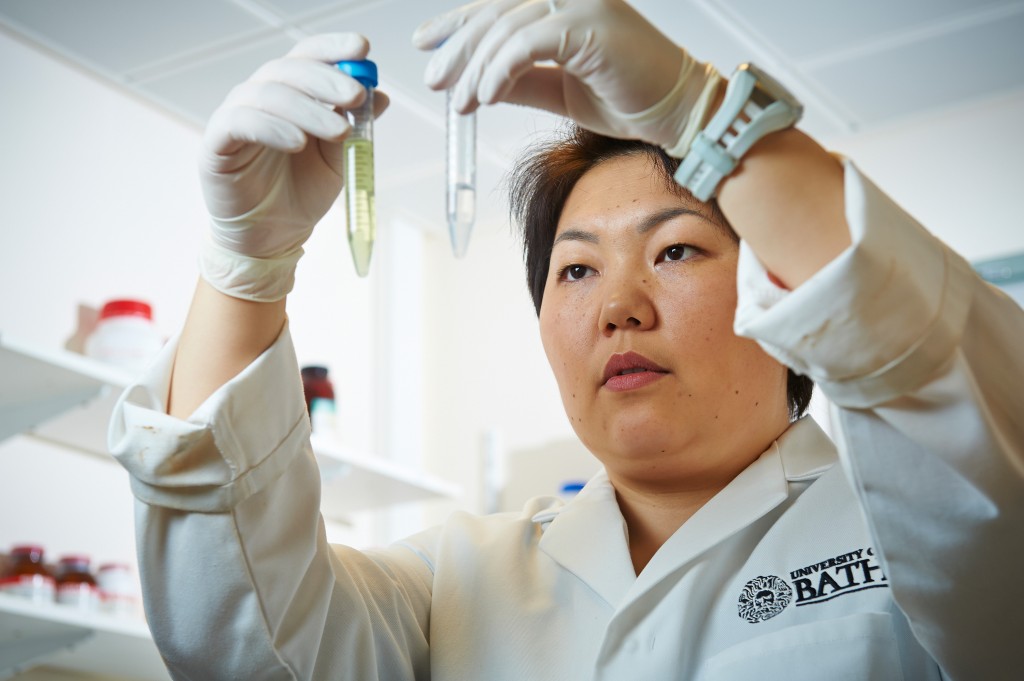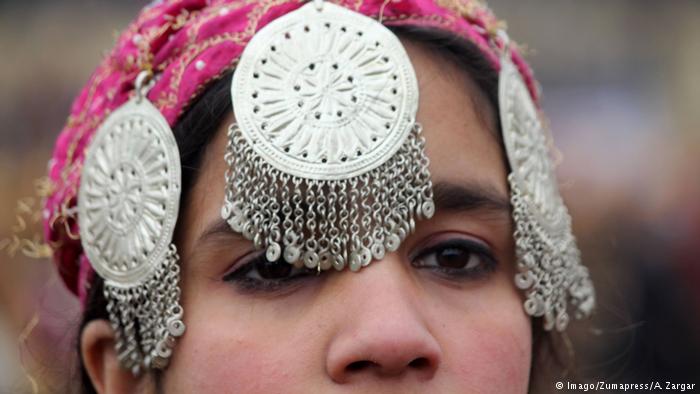‘Being a mom makes me a better scientist’

Dr Asel Sartbaeva, one of Central Asia’s first internationally-recognised female scientists, is busy developing a technology through which life-saving vaccines can be transported at minimal cost. (© WFS)
As she mixes several chemical compounds in a test tube, she meticulously takes notes to make sure she is tracking each stage of the experiment. After all, at this early stage in her research on silica nano-coating, each trial counts.
At 36, Dr. Asel Sartbaeva, one of Central Asia’s first internationally-recognised female scientists, is completely focused on developing a technology through which life-saving vaccines can be transported at minimal cost. At present, unreliable transportation systems and storage facilities not only make it difficult to preserve high-quality vaccines, which require refrigeration, but also exponentially push up the cost.
Her ground-breaking research, if successful, could potentially save millions of lives around the world and lower the price of vaccines, ensuring wider availability across the developing world. Short listed for the illustrious L’OREAL-UNESCO Women in Science Fellowship in 2013 for her work, she has also drawn public attention as one of the 175 Faces of Chemistry by the Royal Society of Chemistry in the UK.
Born in the former Soviet Union, in what is known as Kyrgyzstan today, Dr Sartbaeva’s parents were both passionate about social sciences and art. Graduating as the only Kyrgyz female student in natural sciences from Kyrgyz-Russian Slavic University, she resolved to pursue an academic career in this field.
Successfully navigating the male-dominated fields of chemistry and physics, she is now a Royal Research Fellow at the University of Bath. The mother of a little girl, Dr Sartbaeva has already spent 14 years living away from her home country, but knows that she has done so for “a greater good”. In this interview, Dr Sartbaeva, who is working round-the-clock to develop a nano-coating that would protect a vaccine from its environment both in transit and for storage, talks about the challenges she has faced being one of the few women scientists not only in Kyrgyzstan, but globally as well.
Q: What do you think have been the most important factors that have enabled you to get where you are today?
A: Tenacity and luck. I do believe in this quote that someone famous once said: ‘The more I work, the luckier I get’. That’s the kind of luck I am talking about here. I remember, when I was looking for a scholarship to finish my studies and get my Ph.D., every time I was sent back with a “NO”, in spite of being upset, I chose to focus on my dream of being a scientist. That kept me going.
Q: Tell us a little bit about your childhood, your ambitions and who inspired you in those formative years?
A: My mom is my biggest inspiration. In fact, I believe that she has inspired and helped many women. She brought up my brother and me during really hard times, after the breakup of the Soviet Union. When I was a child, I was quite headstrong; some would even say I was obstinate. I knew from early on that I wanted a career in science, but I also knew that I could succeed in anything.
Q: Has being a woman adversely affected your journey toward becoming the successful scientist you are at present and how?
A: I know being a woman should not have affected my career, but I think it did. Yet, interestingly, it is not all negative. Of course, I had to take maternity leave and was out of action for six months, and it took me a while to catch up. I couldn’t travel for almost three years after my maternity leave, which certainly was a big disadvantage. I also noticed that once you take maternity leave, people stop inviting you to give talks or to present papers at conferences, and it is not easy to leave the family to travel to conferences or workshops around the world. These are obvious setbacks. Apart from that, there are much more subtle disadvantages. I find sometimes that I have to really speak up to make a point so that senior male colleagues pay attention.
At the same time, I feel there are advantages to being a woman in science. People generally remember me from conferences, especially if I am the only female speaker. After I had my baby, I had new ideas for my research, so this was very enlightening. I am probably more productive nowadays, as my working days are shorter. I cannot stay in the laboratory for long hours, as I used to before I had my daughter.
Q: What do you believe is your greatest contribution to society?
A: I make good tea! Just kidding. I’d like to think that generating knowledge is a good contribution. Training a new generation of scientists would be another one. Giving birth to a healthy and a happy little girl is a big one, I think.
Q: What is your main message for the younger generation? What can they learn from your experiences?
A: If they want to succeed in science, they need to believe in themselves and not let anybody else dictate their goals and aspirations. A career in science is not always easy. Nothing beats hard work. The more hard working young people there are, the more successful they will be. (© Women’s Feature Service)
This article is part of U.N. Women’s Empowering Women — Empowering Humanity: Picture It! campaign in the lead-up to Beijing+20.
WTO RECOMMENDS
Two women save Kenya’s anti-cancer tree
The Prunus Africana tree contains ingredients that help fight illnesses like prostate cancer. But the tree is now under threat. Two Kenyan women have taken up the fight to protect this valuable tree. (From March 4, 2013)
‘Mastectomy blouses’ for breast cancer patients
Manisha Koirala, the Bollywood actress from Nepal is known for her courageous fight against ovarian cancer. The actress is now supporting Sahachari, an organization which has developed special “mastectomy blouses” for breast cancer patients. Bollywood actress Manisha Koirala feels that ovarian cancer is attached with a lot of baggage in our society. (From February 22, 2014)
Tech Needs Girls: equipping Ghanaian girls with IT skills
Learning about technology and practical science can help children develop into critical thinkers. That is according to a young Ghanaian entrepreneur who encourages girls as young as six to develop technology skills. (From March 27, 2015)







